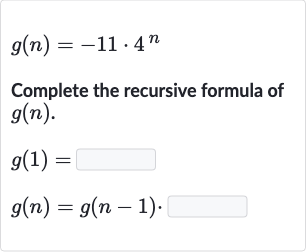AI tutor
Full solution
Q. Complete the recursive formula of .
- Find Initial Value: To find the initial value , we substitute with in the function .Calculation:
- Recursive Formula: The recursive formula for is based on the relationship between and . Since , we can express in terms of by recognizing that .Therefore, .Since , we can write as times .Calculation:

